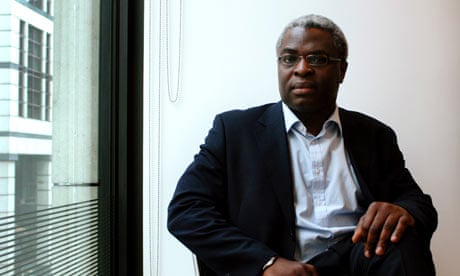"We have a banana republic in the UK. If we want to be a banana republic forever, then fine – if not, we have to do something about it. The only answer is entrepreneurs."
Bold words from Wol Kolade, who, as managing partner of the private equity firm Isis Equity Partners, and the chairman of his trade association, the British Venture Capital Association, is on a mission to rehabilitate the private equity sector.
It's not the easiest of tasks, since just before the crash its practitioners were being widely depicted as a bunch of tax-avoiding asset strippers. But Kolade argues passionately that with banks, the government and many large companies all weighed down with debt, growth can only come from entrepreneurs – and that the maligned private equity sector will play a big role supporting them.
Even more controversially, he believes private equity will make further inroads into sensitive areas such as the care of vulnerable children and the elderly, because of the enormous pressure that is about to be exerted on the public finances, whatever the political complexion of the government that takes power next year.
"Whether people like it or not, we cannot afford healthcare, education and social services in the way they are set up," he insists. "You will have to privatise huge swathes. We are going to have a huge ideological debate. We have a fostering business in our portfolio and people say, 'oh my God, how can a private equity firm do that?'. But it is about recruiting the right people as foster parents and about giving them support, and we can do that."
Kolade is equally controversial on the topic of corporate governance. Most commentators reckon the rules that control companies' behaviour should be being beefed up in the wake of the credit crunch, but he argues that guidelines in the quoted company sector are so onerous that the tail is now wagging the dog.
"We are rowing against a tide where people are more interested in how you are ticking a box, instead of how you are running a business. In private equity we have a very simple job: make money for our shareholders. It is a purity I quite like. Lack of clarity is the source of the trouble; not knowing what your job is."
Kolade and his supporters point out that private equity investment is a much more involved and engaged form of ownership that the dispersed model found on the stock market. There a company's shares are typically held by a wide range of institutions, leading to the phenomenon of the "ownerless corporation", where investors fail to hold a powerful management to account.
At Isis, which targets mid-market businesses that are seeking between £2m and £30m of equity, Kolade is looking to sectors such as healthcare and online retail for growth, along with traditional shops.
"If I were to buy into mainstream retail now, the leasehold deals I could do would be extraordinary," he says.
Turning British retailers into international businesses via the internet is one of his prime aims for 2010. "It is sensible for retailers to reduce their dependence on the UK," he says. "Even the most bullish people think the recovery here will be quite muted."
